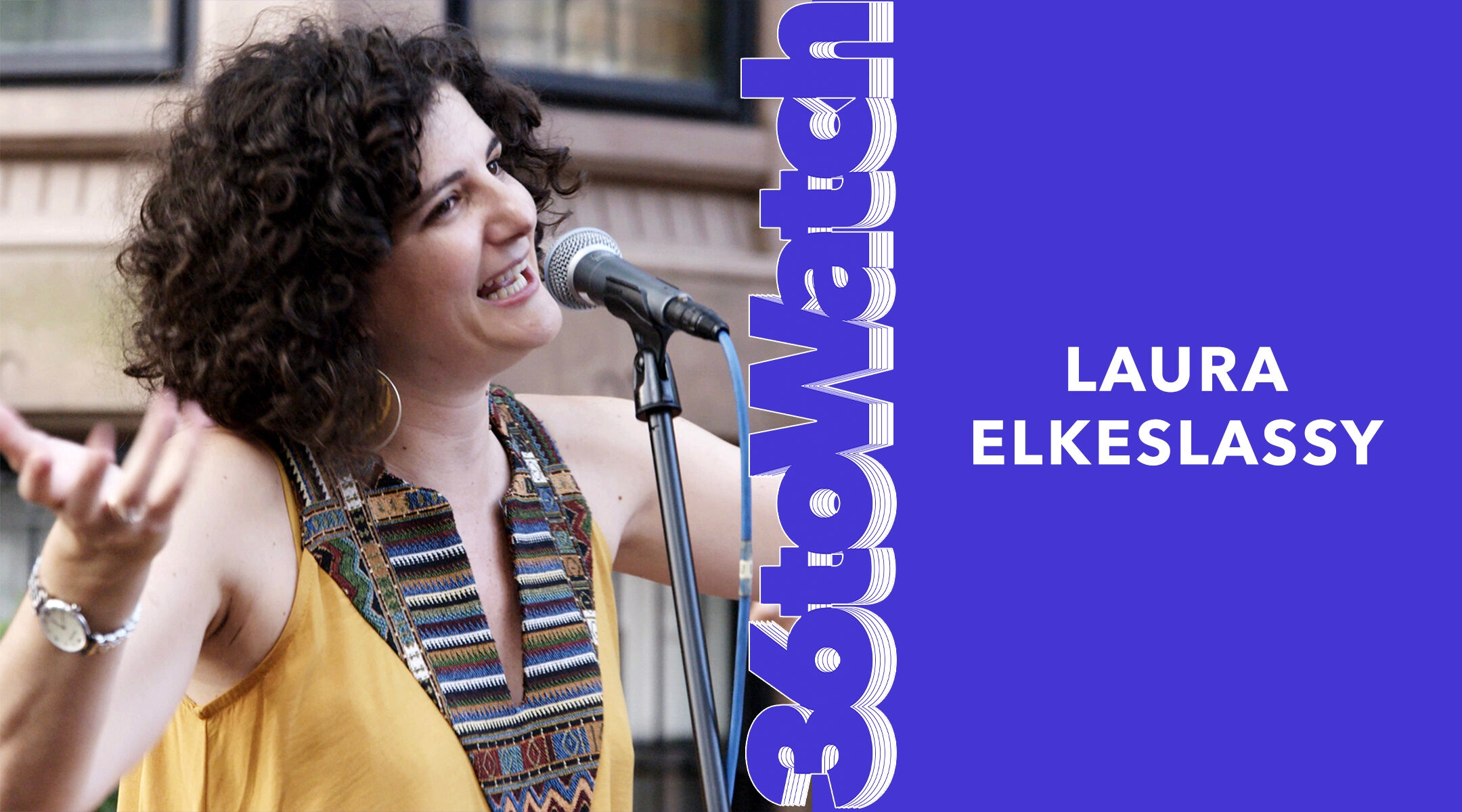Laura Elkeslassy, a singer, actor and educator whose music blends Judeo-Arab, Middle Eastern and Andalusian repertoires, was selected as one of the New York Jewish Week’s 36 to Watch (formerly 36 Under 36). This distinction honors leaders, entrepreneurs and changemakers who are making a difference in New York’s Jewish community. Her latest album, “Ya Ghorbati: Divas in Exile,” dives deep into the history of her Moroccan Jewish family and North African Jewish singers, mostly women, of the early 20th century. She has also been active in developing egalitarian Sephardi/Mizrahi worship services in New York City and Boston. Born in France, with Moroccan and Israeli roots, Elkeslassy lives in Brooklyn.
For the full list of this year’s “36ers,” click here.
New York Jewish Week: Tell us about the work you do and any outstanding accomplishments.
Elkeslassy: My current work focuses on reclaiming the Moroccan Jewish liturgical tradition and the North African musical heritage from a feminist standpoint. I have just released a multimedia album called “Ya Ghorbati: Divas in Exile.” “Ya Ghorbati” is an invitation to a musical journey across North Africa to discover the stories of Judeo-Arab divas from the early 20th century through the 1960s. In it, I excavate songs by Line Monty, Zohra Elfassia, Hbiba Msika, Salim Halali and more, recreating the musical soundscape of my family’s history in Morocco. In the process, I came face to face with forgotten ancestors and reclaimed my true family name as my artist name. Developed in collaboration with music director Ira Khonen Temple, “Ya Ghorbati” weaves together folk and sacred music spanning from the traditional Andalusi style, to popular Shaabi, to Francarabe cabaret. “Ya Ghorbati” looks across time and space to tell a tale of political upheaval and exile, ultimately questioning the binary between Arab and Jew.
How does your Jewish identity or experience influence your work?
I have dedicated the last five years to unearthing and reinventing the Judeo-Arab North African and Middle Eastern folk and liturgical repertoires. The motivation to perform and recreate this music is deeply personal. It is rooted in a desire to explore what it means to be Jewish, what it means to receive a cultural heritage and reinvent it in the present. Through researching my own ancestry, I have rediscovered a musical and spiritual lineage that had long been buried under the rubble of history. I use music as a tool to heal a fragmented identity, both at an individual and collective level.
What is your favorite place to eat Jewish food in New York?
Cafe Mogador.
In one sentence, what was your best experience as a Jewish New Yorker?
Being able to lead egalitarian Sephardi High Holiday services for the first time.
What’s your favorite place in New York to take an out-of-town guest?
Prospect Park.
Want to keep up with stories of other innovative Jewish New Yorkers? Click here to subscribe to the Jewish Week’s free email newsletters.
The New York Jewish Week brings you the stories behind the headlines, keeping you connected to Jewish life in New York. Help sustain the reporting you trust by donating today.





